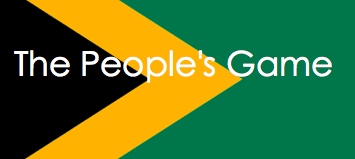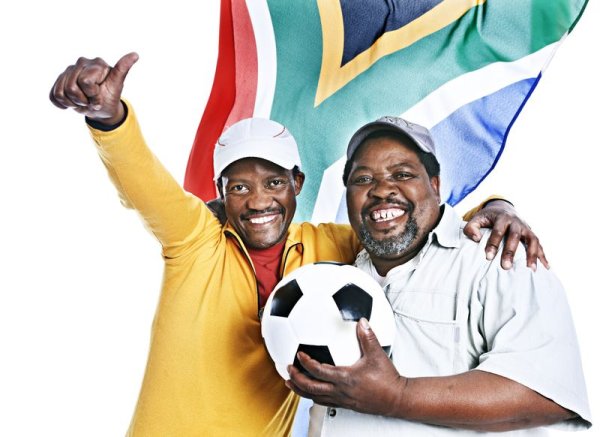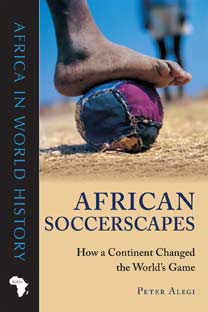
I shared my reflections on the 2010 World Cup (thru June 27) with Alan Minsky, host of The People’s Game — a KPFK/Pacifica Radio project that provides some of the best on-the-field analysis combined with discussions of the political, economic, and cultural subtexts of the 2010 World Cup.
Click here to listen to the interview.
Tag: Peter Alegi

There’s nothing like this: the German Academic Exchange Service‘s ‘Extra Time’ soccer lecture series. It links the two host countries of 2006 and 2010, and celebrates the first ever World Cup on African soil. Featuring German, South African, and international scholars, the eight lectures aim to inspire public debate on the social and cultural dimensions of football. The events take place in World Cup host cities which are also university cities.
On Friday, 7 May, the focus is on ‘Soccer and History’. I will speak about African Soccerscapes, Philip Bonner (Wits University) on the game’s past in the Johannesburg area, Sedick Isaacs on soccer in Robben Island prison, Christiane Eisenberg (Humboldt University Berlin) on the history of FIFA.
The event is free and open to the public. It kicks off at 9:30 a.m. in the Senate Chamber, University of KwaZulu-Natal, Durban Westville Campus.
Click here for the complete schedule of the German-South African Soccer Lecture Series.
New Book: African Soccerscapes
 Released ahead of the 2010 World Cup in South Africa, my new book African Soccerscapes tells the little-known story of football in Africa. Published by Ohio University Press in North America and Hurst & Co. in Europe and Africa, the book is both a history and an examination of the connections between sport and society. Using case studies from around the continent, I show how Africans appropriated soccer from Europeans and turned it into a distinctively African activity during the twentieth century.
Released ahead of the 2010 World Cup in South Africa, my new book African Soccerscapes tells the little-known story of football in Africa. Published by Ohio University Press in North America and Hurst & Co. in Europe and Africa, the book is both a history and an examination of the connections between sport and society. Using case studies from around the continent, I show how Africans appropriated soccer from Europeans and turned it into a distinctively African activity during the twentieth century.
African players, fans, and officials challenged colonial power and expressed a commitment to racial equality and self-determination. In postcolonial times, new nations staged matches in national stadiums as part of their independence celebrations and joined FIFA. The Confédération Africaine de Football democratized the global game through antiapartheid sanctions and increased the number of African teams in the World Cup finals.
African Soccerscapes analyzes the causes and effects of the departure of huge numbers of African players to overseas clubs and the dominance of commercial interests in local leagues. Finally, a consideration of the growth of women’s soccer and South Africa’s hosting of the 2010 World Cup challenges the one-dimensional notion of Africa as a backward, “tribal” continent populated by victims of war, corruption, famine, and disease.
Look for stories from African Soccerscapes on this blog, as well as news and updates about book events, talks, media coverage and more.